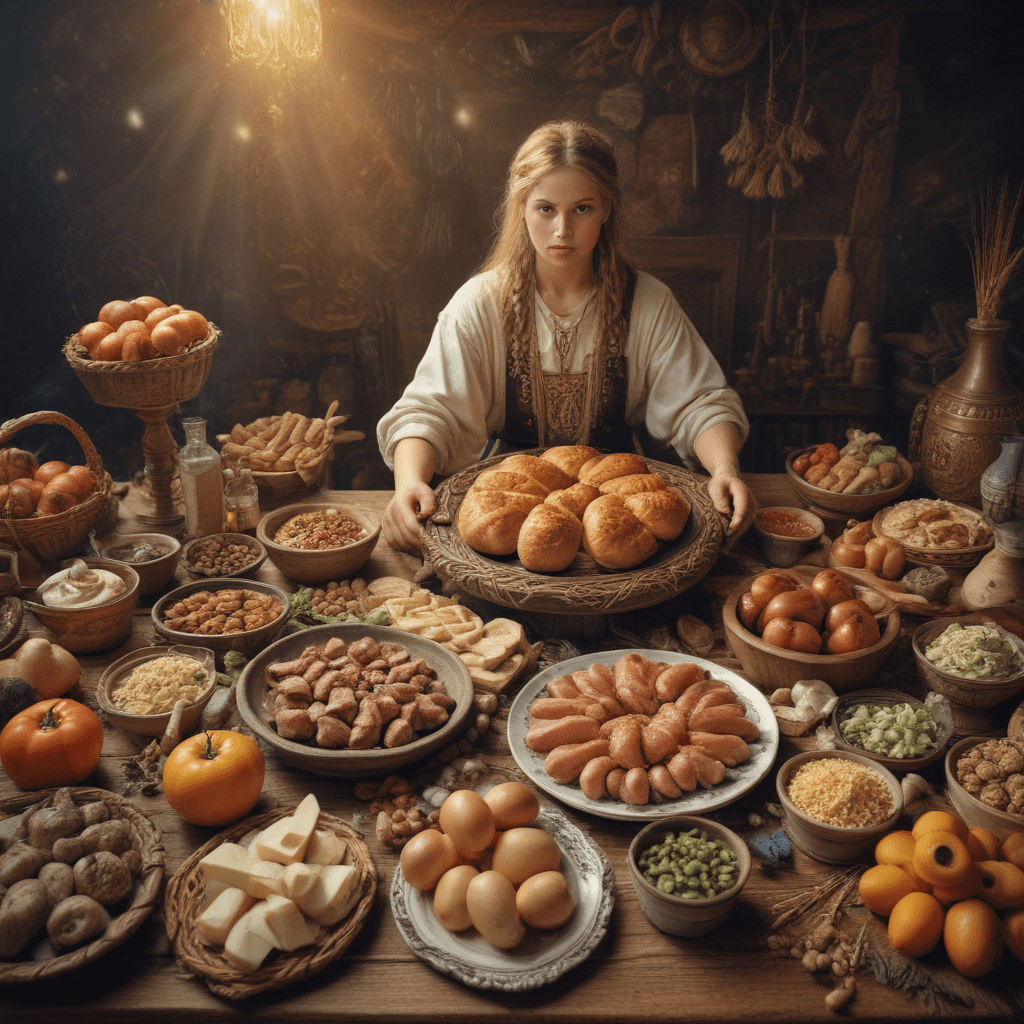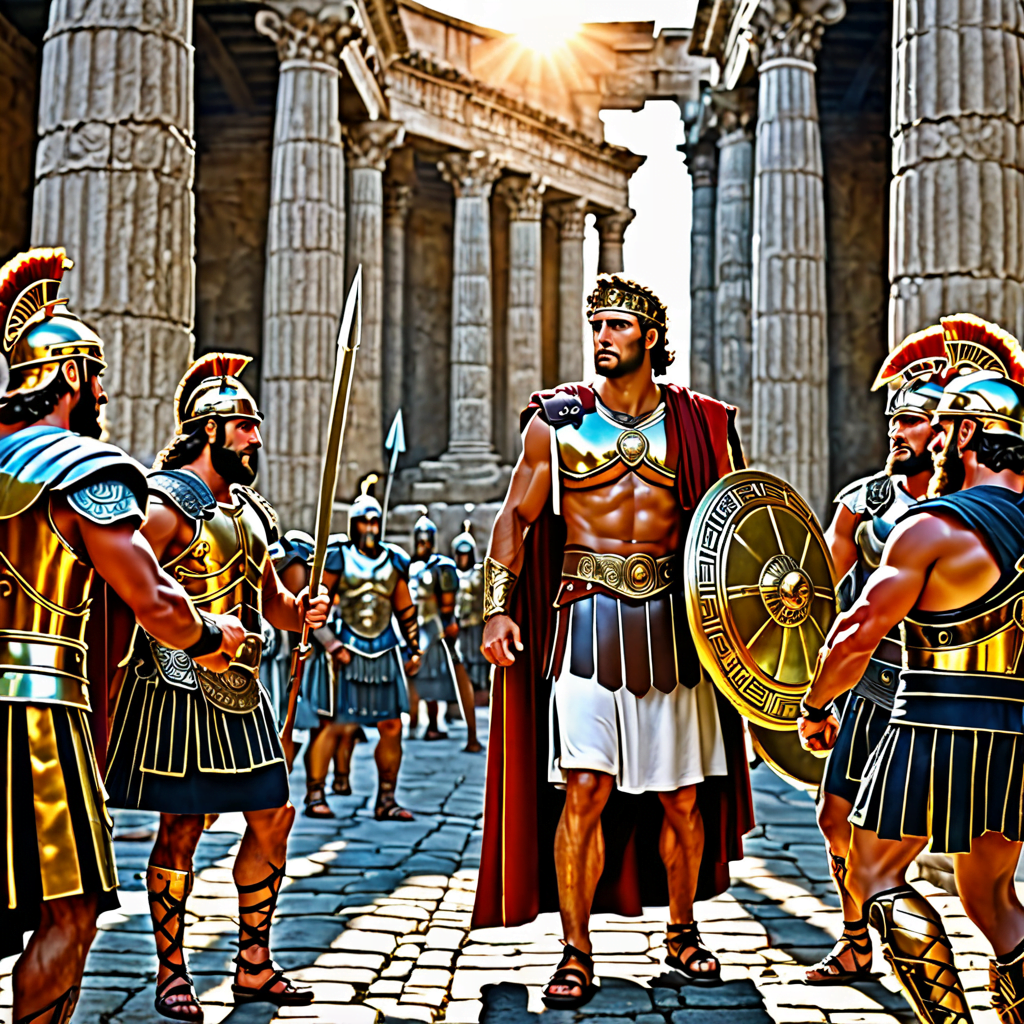The Influence of Slavic Mythology on Traditional Cuisine
I. Slavic Mythology: An Overview
Slavic mythology, a rich tapestry of beliefs, legends, and rituals, has profoundly influenced the traditional cuisine of Slavic cultures. Originating from ancient Slavic tribes, this mythology is characterized by animistic beliefs, supernatural beings, and a deep connection to nature. These beliefs have permeated every aspect of Slavic life, including the way they prepare and consume food.
II. The Importance of Food in Slavic Culture
Food occupies a central position in Slavic culture. Slavic mythology portrays food as a gift from the gods, a symbol of abundance and fertility. Communal meals were an integral part of Slavic social life, fostering connections and strengthening community bonds. Food was not merely sustenance but a medium through which stories were told, spirits were honored, and traditions were passed down.
III. Legendary Creatures in Slavic Cuisine
Slavic mythology teems with legendary creatures that have left their mark on traditional cuisine. The Rusalka, a water spirit, is associated with rivers and lakes and is believed to lure people to their watery graves. As a result, Slavic cuisine often features dishes made with fish and other aquatic ingredients. The Vila, a forest fairy, is said to bestow fertility on crops, leading to the use of wildflowers and herbs in Slavic cooking.
IV. The Role of Spirits in Slavic Food Traditions
Slavic mythology is permeated with the belief in spirits that inhabit the natural world and influence human affairs. The Domovoi, a household spirit, is said to protect the home and ensure prosperity. Offerings of food and drink were often made to the Domovoi to appease him and bring good fortune. Similarly, the Leshy, a forest spirit, was believed to control the hunt, and hunters would leave offerings of food at his designated trees.
V. Slavic Deities Associated with Food
Slavic mythology features several deities specifically associated with food and agriculture. Lada, the goddess of love and beauty, is also seen as the protector of harvests. Her symbol, the apple, is a prominent ingredient in Slavic cuisine. Similarly, Veles, the god of cattle and wealth, is believed to bring prosperity to those who honor him with offerings of food.
VI. Rituals and Celebrations Involving Food
Food played a pivotal role in Slavic rituals and celebrations. The harvest festival of Obzhinki, for instance, marked the culmination of the harvest season and involved a variety of traditional dishes. The Koliada festival, celebrating the winter solstice, featured special pastries known as kutia and pancakes. Food offerings were also an integral part of ancestor veneration rituals, ensuring a connection between the living and the departed.
VII. Mythical Ingredients and Their Symbolic Meanings
Slavic mythology ascribed symbolic meanings to various ingredients used in traditional cuisine. Milk, for example, symbolized purity and new beginnings, while honey represented sweetness and fertility. Bread was considered sacred and held special significance in rituals and celebrations. The use of wild plants, herbs, and spices reflected the belief in their medicinal and protective properties.
VIII. Traditional Slavic Cooking Techniques
Slavic mythology influenced not only the ingredients used in traditional cuisine but also the cooking techniques employed. The use of fermentation and preservation methods, such as pickling and salting, ensured food could be stored for longer periods during the harsh winter months. Traditional ovens, known as pechi, were used for baking bread and other dishes. These ovens, often adorned with mythological symbols, were believed to possess a life of their own and required special care and respect.
IX. The Legacy of Slavic Mythology in Modern Cuisine
The legacy of Slavic mythology continues to resonate in modern Slavic cuisine. Many traditional dishes and culinary practices have been passed down through generations, albeit with adaptations to contemporary tastes and lifestyles. Ingredients like dill, cabbage, and buckwheat remain staples in Slavic kitchens. Rituals such as kutia at Christmas and painted eggs at Easter still hold cultural significance. Slavic mythology provides a rich tapestry of culinary traditions that continue to inspire and nourish Slavic cultures today.
X. Conclusion: The Enduring Impact of Slavic Mythology on Food
Slavic mythology has left an enduring impact on traditional Slavic cuisine, shaping the ingredients used, cooking techniques employed, and the symbolic meanings attributed to food. Communal meals, rituals, and celebrations centered around food have played a vital role in fostering a sense of community and preserving cultural traditions. The legacy of Slavic mythology continues to live on in modern Slavic cuisine, providing a glimpse into the rich tapestry of beliefs and practices that have shaped Slavic culture for centuries.
FAQs
What is the origin of Slavic mythology?
Slavic mythology originated from the beliefs and practices of ancient Slavic tribes.
How did Slavic mythology influence traditional cuisine?
Slavic mythology shaped the ingredients used, cooking techniques employed, and symbolic meanings attributed to food in traditional Slavic cuisine.
What are some legendary creatures associated with Slavic cuisine?
Legendary creatures like the Rusalka, Vila, and Domovoi feature prominently in Slavic mythology and have influenced the use of specific ingredients and dishes.
What role did spirits play in Slavic food traditions?
Spirits, such as the Domovoi and Leshy, were believed to influence food availability and prosperity, and offerings of food were made to appease them.
How is Slavic mythology reflected in modern Slavic cuisine?
Traditional dishes, culinary practices, and ingredients from Slavic mythology continue to inspire and shape modern Slavic cuisine, preserving cultural traditions and providing a glimpse into the past.



